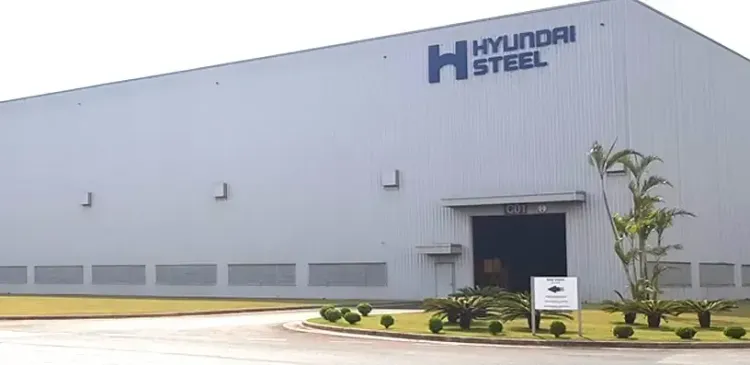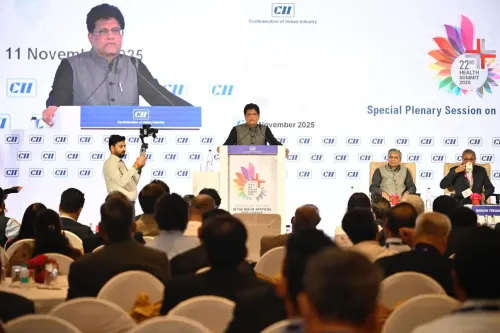Hyundai Steel Temporarily Halts Rebar Production Due to Low Demand

Synopsis
Key Takeaways
- Hyundai Steel shuts down a rebar plant in Incheon.
- Closure is due to low demand for steel reinforcement bars.
- Other steel facilities remain operational.
- Emergency management mode activated due to market challenges.
- Union workers plan further strikes affecting production.
Seoul, April 1 (NationPress) Hyundai Steel, the second-largest steel producer in South Korea, announced on Tuesday that it has temporarily closed one of its three local steel reinforcement bar (rebar) facilities due to insufficient demand.
The rebar facility located in Incheon, just west of Seoul, will remain inactive for the entirety of April, as stated by a company spokesperson. The other two plants will continue their operations, according to reports from Yonhap news agency.
The firm anticipates that the one-month shutdown of the plant will assist in alleviating an oversupply situation in a market where steel manufacturers are experiencing falling product prices amidst heightened competition.
On March 14, Hyundai Steel activated an emergency management mode in response to escalating challenges, which include the recent imposition of steel tariffs by the administration of Donald Trump and ongoing disputes with unionized labor.
Previously, the company had also temporarily closed its cold-rolled steel facility in Dangjin, approximately 80 kilometers southwest of Seoul, from February 24 to March 31 due to a prolonged strike by workers advocating for wage increases.
Union workers at the cold-rolled steel facility are planning to initiate another walkout on April 8, according to the spokesperson.
The pickling line/tandem cold mill (PL/TCM) facility is a crucial component of the company’s integrated steel mill in Dangjin.
Meanwhile, South Korean industries are remaining cautious on Tuesday regarding a series of U.S. tariffs set to be implemented this week, raising concerns about their potential impact on the nation’s export-driven economy, as noted by industry observers.
On Wednesday (U.S. time), Washington is expected to reveal its reciprocal tariffs, considering each country's tariffs and non-tariff barriers against U.S. exports. The following day, a 25 percent duty on all foreign-made automobiles and key auto parts entering the U.S. will be enforced.
Trump has also indicated the possibility of imposing sector-specific tariffs on semiconductors and pharmaceuticals, which has pushed South Korean exporters in most critical industries into a crisis mode.
Hyundai Motor Group, South Korea’s largest automotive manufacturer, has been preparing for imminent challenges since Trump's reelection and is hastening efforts to enhance local production in America, the group's largest national market.
During a press conference at the White House last week, the group committed to a US$21 billion investment in the U.S. over the next four years and vowed to expand local production.
The group plans to increase the capacity of its newly inaugurated Hyundai Motor Group Metaplant America (HMGMA) in Georgia from 300,000 to 500,000 units annually. Together with its other facilities in Alabama and Georgia, the group aims to elevate its annual production capacity in the U.S. to over 1 million units.









